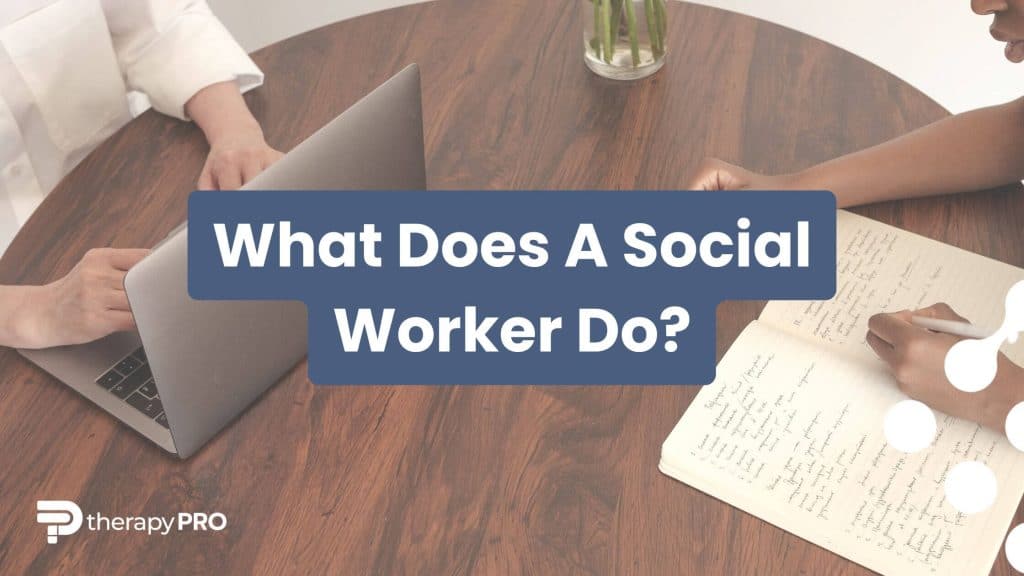What Does a Social Worker Do? Navigating Systems with Confidence
For many, understanding and navigating complex systems like the NDIS, Centrelink, or healthcare networks can feel overwhelming. This is where the social worker role becomes invaluable. But, what does a social worker do?
They act as guides, advocates, and problem-solvers, helping individuals make sense of these systems and access the supports they need.
From coordinating multidisciplinary teams to ensuring therapy aligns with a participant’s unique goals, social workers bring expertise and empathy to every situation.
In this article, we’ll explore how social workers help clients navigate systems, maximise their resources, and connect the dots between various supports to create a seamless path toward independence and well-being.
How Social Workers Help Clients Navigate Systems
What does a social worker do when it comes to navigating systems? They use their expertise to simplify complex policies and processes, making it easier for clients to access the resources they need.
Social workers guide participants through systems like:
- The NDIS
- Centrelink
- Medicare
- The Department of Housing
- State-funded supports
- Legal systems
- GPs and other healthcare networks
By understanding these systems in depth, social workers can simplify them and help clients take meaningful steps toward their goals. Their work often involves finding and coordinating the right services to meet each person’s unique needs.
For instance, a social worker might:
- Help someone apply for housing support
- Assist with accessing a mental health care plan via their GP
- Manage the overlap between legal and health services
- Explain NDIS plans and how to use them effectively
Making the NDIS Easier to Navigate
The NDIS can feel overwhelming, especially for those who are new to it. What does a social worker do to help with this?
They play an important role in breaking down the complexities of the NDIS, ensuring participants understand their rights, explore their options, and make the most of the funding available to them.
Social workers work closely with participants, their families, and other professionals to explain how the NDIS works and how to access the right supports. They look at the big picture to ensure all services are connected.
For example, a social worker might help someone navigate their NDIS plan while also coordinating with other services like the Department of Housing or child safety.
This kind of teamwork ensures that all supports work together smoothly, avoiding confusion or gaps in care.
Managing Supports
What does a social worker do when managing supports? They use specific strategies to ensure participants get the most out of their systems and services:
- Coordinating multidisciplinary teams (MDTs): When participants have multiple professionals involved in their care, social workers help the MDTs collaborate. This prevents confusion and ensures each team member’s role is clear.
- Therapy planning support: Social workers provide valuable insights to ensure therapy aligns with a participant’s goals and overall needs.
By managing supports effectively, social workers help participants get the best value from their funding while focusing on what truly matters to them. Breaking down complex systems and providing clear guidance empowers participants to make informed decisions and live more fulfilling lives.
Empowering Lives Through System Navigation
Although we’ve focused on understanding systems, the role of a social worker goes far beyond this.
It’s about empowering individuals to take charge of their lives. What does a social worker do? They simplify processes, coordinate supports, and offer clear, actionable guidance to ensure clients feel supported and confident.
Whether it’s navigating the NDIS, managing healthcare plans, or bridging gaps between services, social workers foster independence and wellbeing. Their work transforms lives, helping participants build brighter futures.
If you or someone you know could benefit from the expertise of a social worker, reach out today to learn how they can make a difference. The right guidance could be the key to unlocking a smoother path forward.
About the Author: Jared
Jared has been a social worker for nearly 15 years, bringing a wealth of experience and passion to his work. He specialises in psychosocial disability support and capacity building, with a deep understanding of ways to help people develop skills, set meaningful goals, and connect with their communities.
Jared’s approach is friendly and empowering. He focuses on building trust with the people he supports, helping them understand their needs and recognise the progress they’re making.
As a Mental Health Social Worker, Jared knows how to create personalised plans that make a real difference in people’s lives. He believes that great therapy gives you more than just solutions—it gives you hope, clarity, and a sense of purpose.
Outside of work, Jared enjoys gaming and connecting with people who share this interest. Whether through games or goals, he’s always ready to support and empower those he works with to live meaningful, fulfilling lives.




